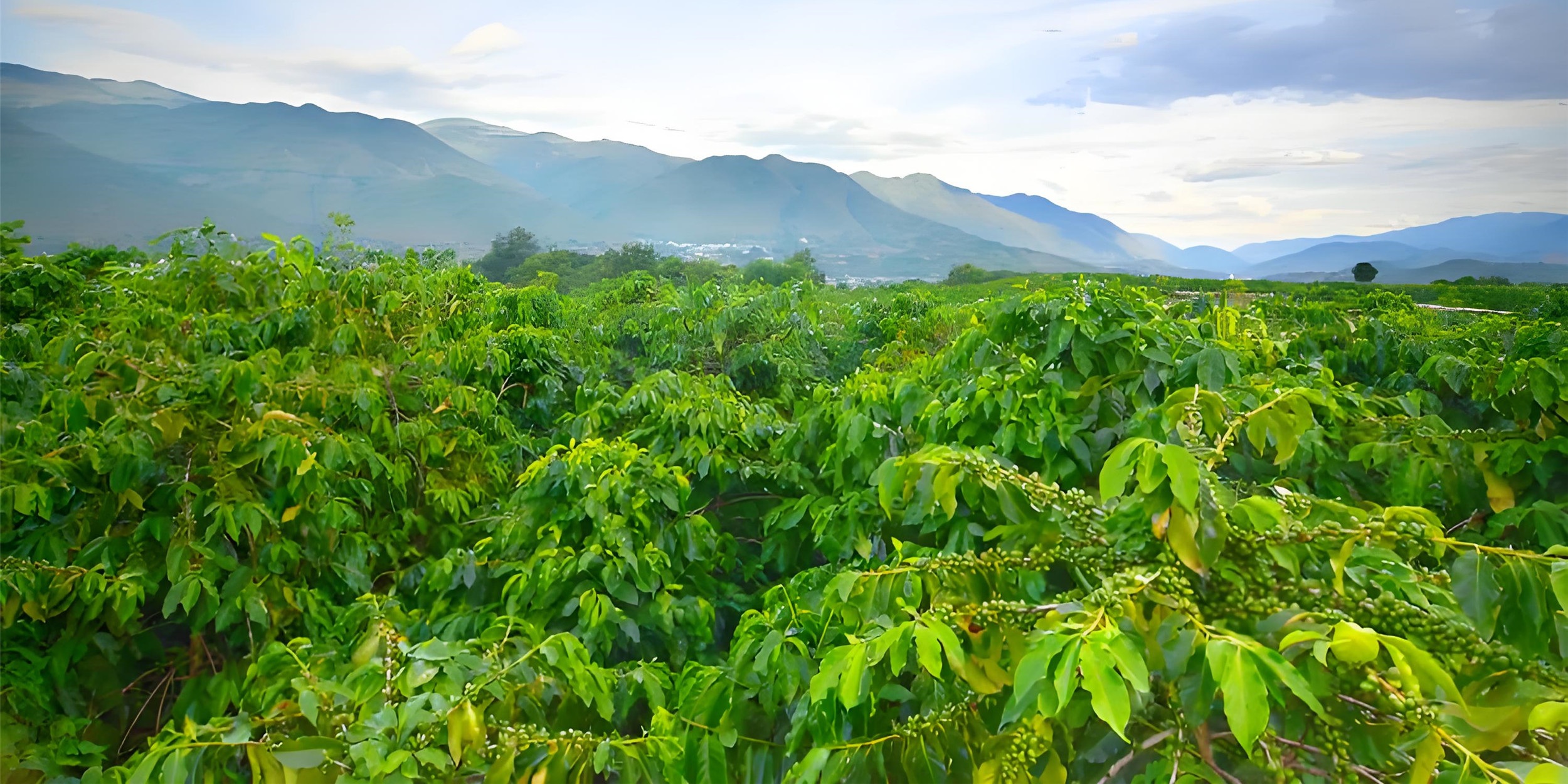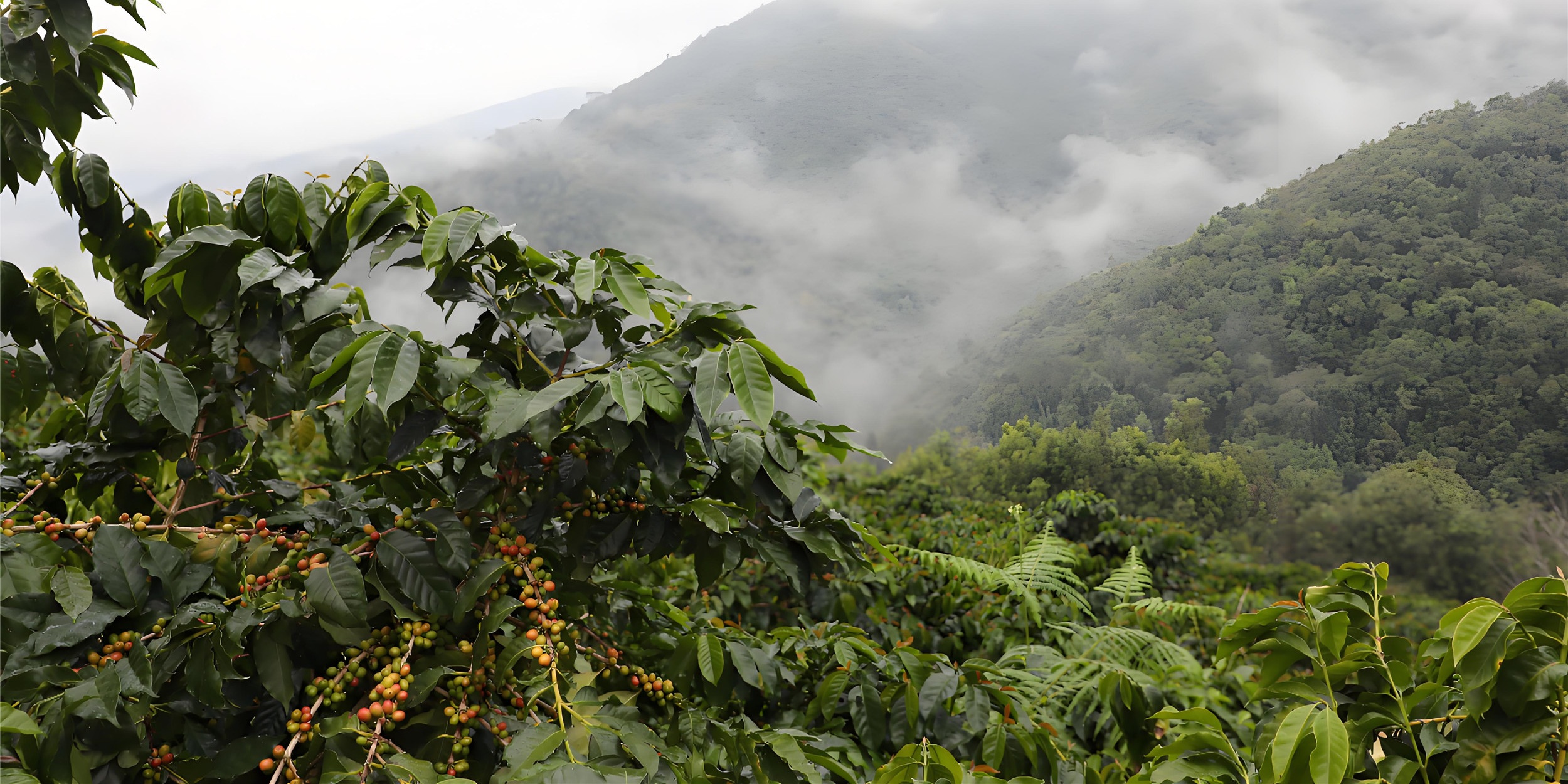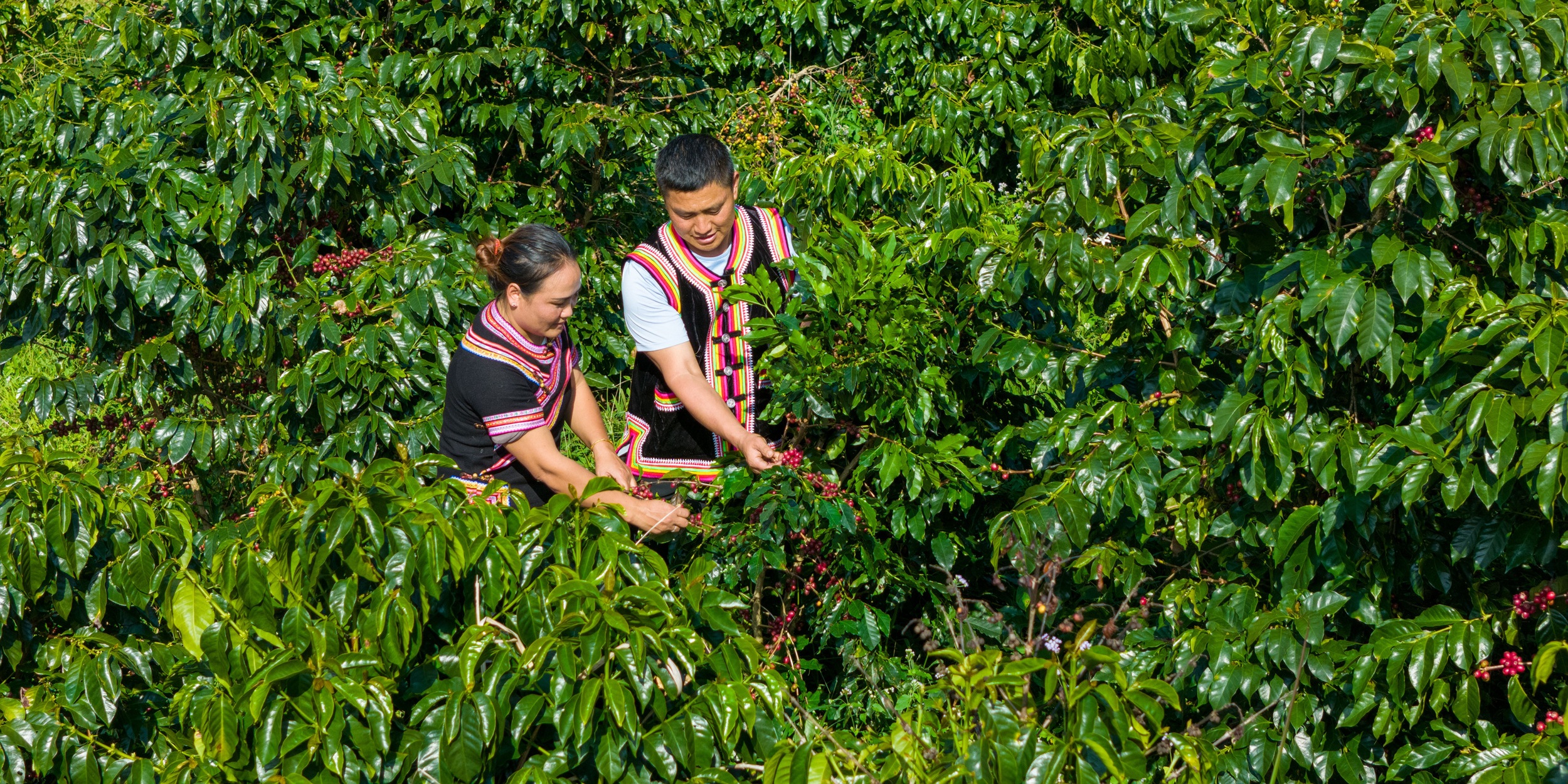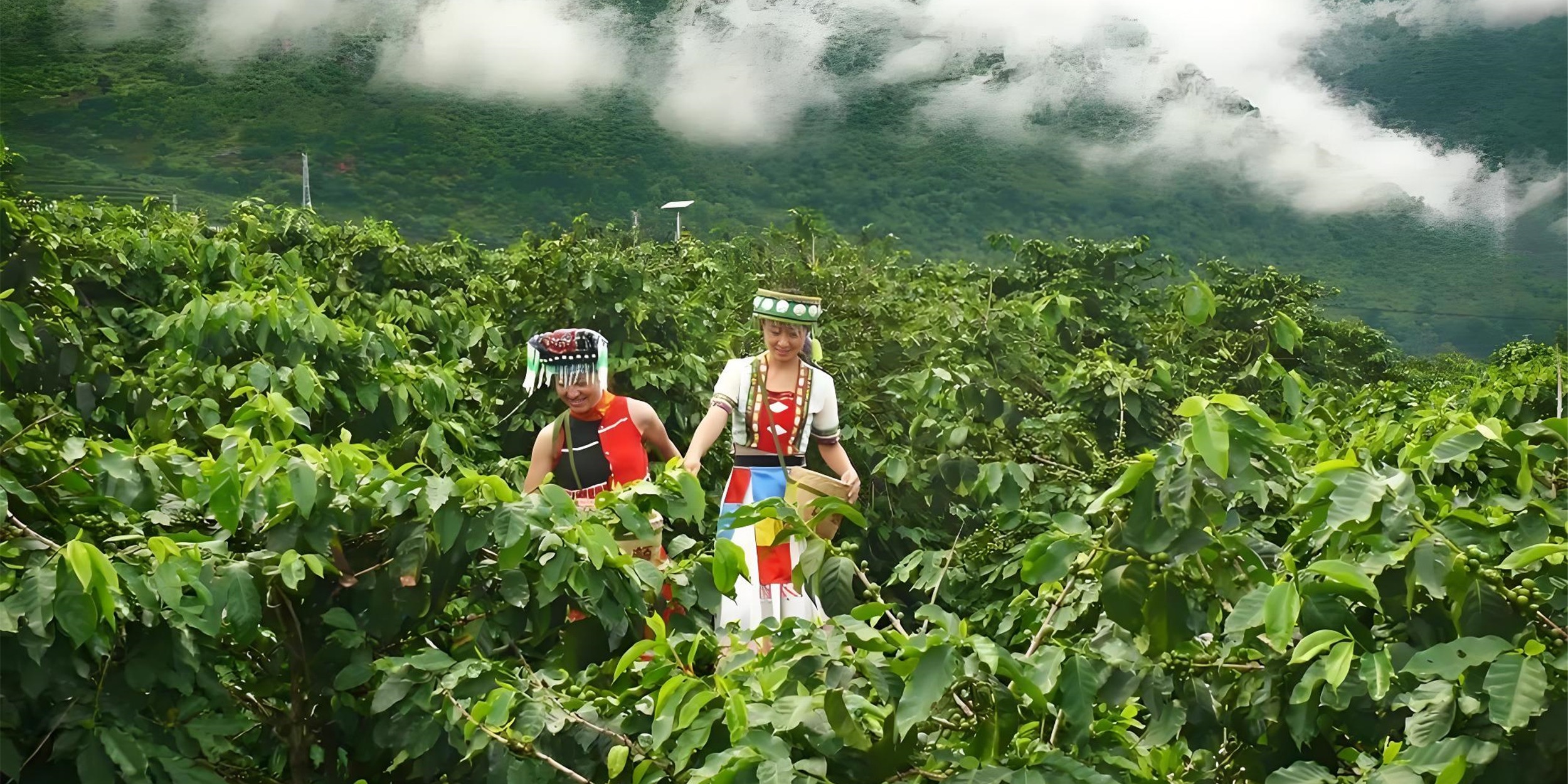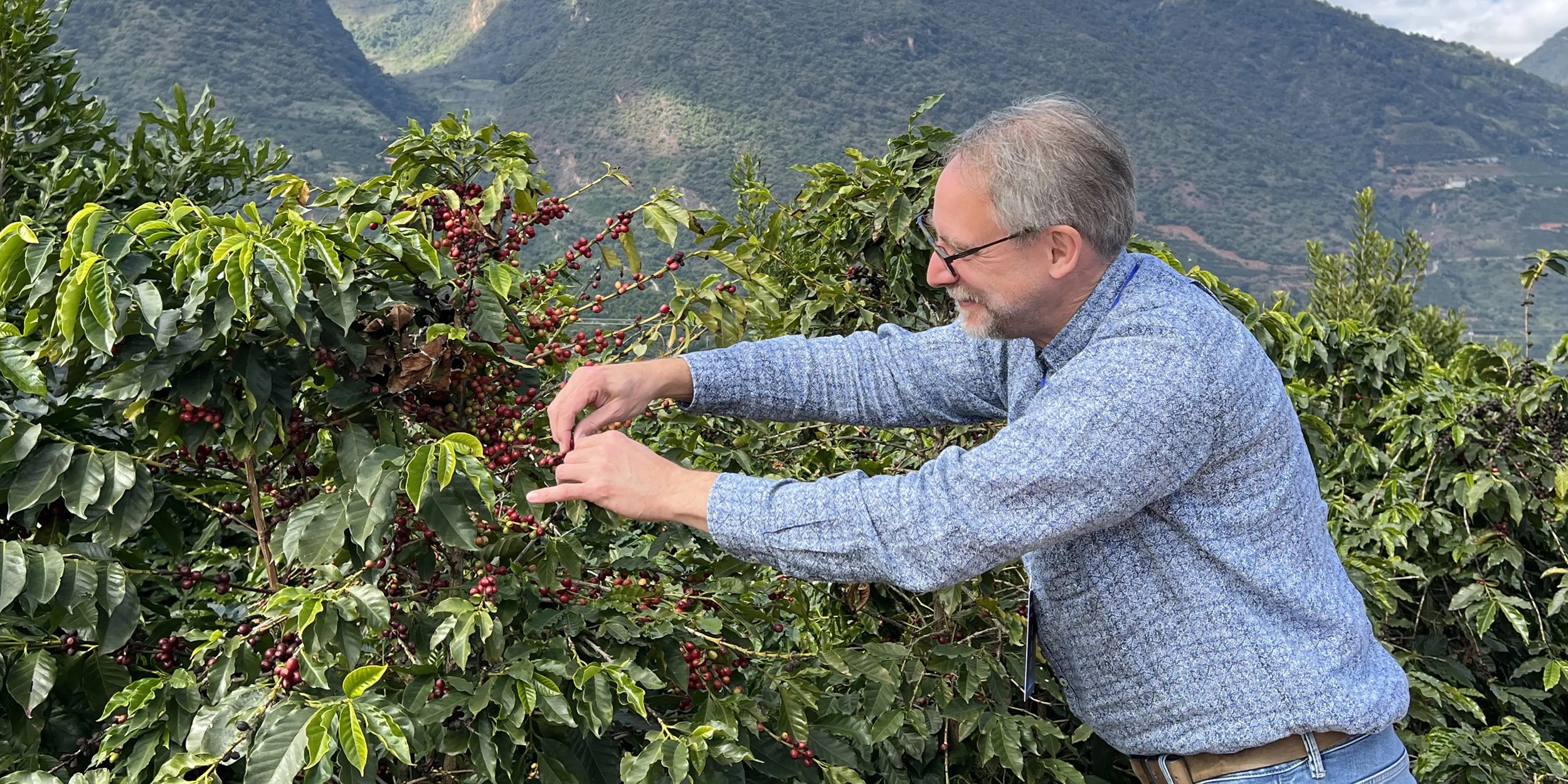云南扩大咖啡生产、加工 Yunnan expands coffee production and processing

云南普洱的咖啡种植园里,农民正在晾晒咖啡豆。 [图片/新华社]
国内市场行业繁荣,产品销售额多样,预计到2025年将达到1440亿美元
随着中国消费者日益成为精明的咖啡饮用者,中国西南部的云南省正计划种植更多优质咖啡豆,并把自己打造成为一个重要的全球咖啡生产地区。
云南是中国最大的咖啡种植区,利用其高海拔和有利的气候条件种植优质咖啡豆。该地区生产的咖啡豆通常果香浓郁、口感醇厚但不苦。
今年8月初,云南省政府发布文件要求提高该省豆类的深加工和精品咖啡产品的生产。到2024年,该省的优质咖啡豆产量占其总产量的30%,咖啡豆的深加工率达到80%。深加工是指使用工业干燥和研磨方法。
指南还指出,云南将进一步开发咖啡胶囊、滴袋咖啡和浓缩咖啡等新产品,以满足中国前卫咖啡爱好者日益多样化的需求。
“云南咖啡产区气候复杂多样,不同地区采用不同的栽培技术以适应各种条件。我们的目标是选择具有高品质、高产量和抗病性的优良品种,”云南省农业科学院研究员黄家雄说。
黄说,云南咖啡产业的经济产出可以提升。推广绿色高效种植技术和更好的初加工技术可以提高咖啡的口感和质量,最终提高云南优质咖啡的产量并进一步扩大其市场份额。
巴西是全球最大的咖啡豆生产国,占全球咖啡贸易的30%以上。去年,巴西在收获季节经历了干旱和霜冻,导致咖啡豆产量同比下降近20%,根据巴西食品供应和统计局Conab的数据。然而,这也为云南的咖啡豆生产商提供了更多的增长机会。
据云南省农业科学院统计,去年云南出口咖啡豆1.1万吨,其中生豆占79%,深加工豆占20%左右。
云南咖啡豆的平均产量为每公顷2000公斤,是全球平均产量的2.28倍。根据该学院的数据,就单位产量而言,云南的咖啡种植已达到全球最高水平。
李丽宏,云南保山的一位咖啡贸易商,宝山镇宝太安咖啡有限公司的创始人。在2012年创立公司之前,他曾前往巴西和哥伦比亚等主要的咖啡种植区学习咖啡种植。
目前,该公司的咖啡豆年销售量超过2000吨。去年,它在云南开设了六家销售咖啡产品的连锁店。今年,该公司计划在北京、云南省昆明市、四川省成都市、湖北省武汉市和广东省广州市开设新的连锁店。
李说:“我们的主要产品包括咖啡豆、咖啡粉和速溶咖啡。在未来三年内,我们计划扩大生产线,包括冷冻干燥咖啡粉,并设立一条新的生产线生产冷萃咖啡。”
“我们还计划与当地职业学校进一步合作,建立工厂培训学生。一旦他们毕业,就可以成为合格的咖啡生产者。”她说。
云南在1952年开始大规模种植咖啡,近年来中国咖啡的日益普及也促进了更多咖啡公司的成立。
咖啡树品种猫屎果,茎较短但果实和种子较大,占云南咖啡种植总产量的95%以上。该学院表示,该地区需要探索新品种。
到目前为止,云南已经从埃塞俄比亚引进了6000多种咖啡种质资源——用于培育新咖啡品种的种子或植物部分,并从巴西、葡萄牙和印度等主要咖啡产区选出了300多个新品种。未来的国际合作和资源交换可以从海外市场引进更多高质量的咖啡种质资源并发现新品种。此外,中国还计划开发新的国内豆种。

8月,在云南昆明举行的咖啡博览会上,参观者品尝各种产品。
中国一家市场研究公司iResearch称,去年云南的咖啡种植区面积、产量和豆子产值占全国的98%以上。
到2025年,中国咖啡市场销售额预计将超过1万亿元(约合1438亿美元),约为当前数字的三倍。2021年,国内咖啡行业的销售收入达到3817亿元。根据iResearch的数据,连锁咖啡馆的数量不到总数的13%,这意味着该行业的所有权高度分散。
随着中国咖啡饮用者数量的迅速增长,这个国家正成为全球最重要的咖啡消费市场之一,这提振了云南咖啡产业的信心。
根据饿了么发布的报告,全国范围内,上海连续三年在咖啡消费方面领跑。北京、杭州、浙江省和广州紧随其后。
截至6月30日,上海共有7857家咖啡馆,超过了纽约、伦敦和东京。根据在线食品订购和配送服务提供商美团的一份报告,上海越来越多的咖啡零售商正在使用云南产的咖啡豆。
虽然云南豆类的种植还有很大的发展空间,但是其发展也受到了一定的限制。云南的豆类种植主要集中在山区,那里大规模机械化种植比较困难,种植和采摘大多还是靠人力。
黄说,此外,云南大多数咖啡种植区位于高海拔地区,这些地方有时还会遭受温度波动和干旱。
In the coffee plantation in Pu'er, Yunnan, farmers are drying coffee beans. [Image/Xinhua News Agency]
The domestic market is thriving with diverse product sales, expected to reach 144 billion US dollars by 2025
As Chinese consumers become increasingly savvy coffee drinkers, Yunnan Province in southwestern China is planning to grow more high-quality coffee beans and establish itself as an important global coffee production region.
Yunnan is the largest coffee growing area in China, utilizing its high altitude and favorable climate conditions to cultivate high-quality coffee beans. The coffee beans produced in this region usually have a strong fruity aroma, a mellow taste but not bitter.
In early August this year, the Yunnan Provincial Government issued a document requiring an increase in the deep processing of legumes and the production of premium coffee products in the province. By 2024, the province's high-quality coffee bean production will account for 30% of its total output, and the deep processing rate of coffee beans will reach 80%. Deep processing refers to the use of industrial drying and grinding methods.
The guide also points out that Yunnan will further develop new products such as coffee capsules, drip bag coffee, and espresso to meet the increasingly diverse needs of avant-garde coffee enthusiasts in China.
The climate in Yunnan coffee producing areas is complex and diverse, and different regions adopt different cultivation techniques to adapt to various conditions. Our goal is to select excellent varieties with high quality, high yield, and disease resistance, "said Huang Jiaxiong, a researcher at Yunnan Academy of Agricultural Sciences.
Huang said that the economic output of Yunnan's coffee industry can be improved. Promoting green and efficient planting techniques and better initial processing techniques can improve the taste and quality of coffee, ultimately increasing the production of high-quality coffee in Yunnan and further expanding its market share.
Brazil is the world's largest producer of coffee beans, accounting for over 30% of global coffee trade. Last year, Brazil experienced drought and frost during the harvest season, resulting in a nearly 20% year-on-year decrease in coffee bean production, according to data from the Brazilian Food Supply and Statistics Agency Conab. However, this also provides more growth opportunities for coffee bean producers in Yunnan.
According to statistics from the Yunnan Academy of Agricultural Sciences, Yunnan exported 11000 tons of coffee beans last year, of which raw beans accounted for 79% and deep processed beans accounted for about 20%.
The average yield of coffee beans in Yunnan is 2000 kilograms per hectare, which is 2.28 times the global average yield. According to the data from the college, in terms of unit yield, coffee cultivation in Yunnan has reached the highest level in the world.
Li Lihong is a coffee trader from Baoshan, Yunnan, and the founder of Baotai'an Coffee Co., Ltd. in Baoshan Town. Before founding the company in 2012, he had traveled to major coffee growing regions such as Brazil and Colombia to learn coffee cultivation.
At present, the company's annual sales volume of coffee beans exceeds 2000 tons. Last year, it opened six chain stores selling coffee products in Yunnan. This year, the company plans to open new chain stores in Beijing, Kunming in Yunnan Province, Chengdu in Sichuan Province, Wuhan in Hubei Province, and Guangzhou in Guangdong Province.
Li said, "Our main products include coffee beans, coffee powder, and instant coffee. In the next three years, we plan to expand our production line, including freeze-drying coffee powder, and establish a new production line to produce cold brew coffee
We also plan to further cooperate with local vocational schools to establish factories to train students. Once they graduate, they can become qualified coffee producers, "she said.
Yunnan began large-scale coffee cultivation in 1952, and in recent years, the increasing popularity of coffee in China has also promoted the establishment of more coffee companies.
The coffee tree variety cat poop fruit has a shorter stem but larger fruit and seeds, accounting for over 95% of the total coffee production in Yunnan. The college stated that the region needs to explore new varieties.
So far, Yunnan has introduced over 6000 coffee germplasm resources from Ethiopia - seeds or plant parts used to cultivate new coffee varieties, and has selected more than 300 new varieties from major coffee producing areas such as Brazil, Portugal, and India. Future international cooperation and resource exchange can introduce more high-quality coffee germplasm resources from overseas markets and discover new varieties. In addition, China also plans to develop new domestic soybean varieties.
In August, visitors tasted various products at the Coffee Expo held in Kunming, Yunnan.
According to iResearch, a market research company in China, the coffee planting area, yield, and bean output value in Yunnan accounted for over 98% of the country's total last year.
By 2025, the sales revenue of China's coffee market is expected to exceed 1 trillion yuan (approximately 143.8 billion US dollars), which is about three times the current figure. In 2021, the sales revenue of the domestic coffee industry reached 381.7 billion yuan. According to iResearch data, the number of chain coffee shops is less than 13% of the total, which means that ownership in the industry is highly dispersed.
With the rapid growth of coffee drinkers in China, the country is becoming one of the world's most important coffee consumption markets, boosting confidence in the Yunnan coffee industry.
According to a report released by Ele.me, Shanghai has been leading in coffee consumption for three consecutive years nationwide. Beijing, Hangzhou, Zhejiang Province, and Guangzhou followed closely behind.
As of June 30th, there were 7857 coffee shops in Shanghai, surpassing New York, London, and Tokyo. According to a report from Meituan, an online food ordering and delivery service provider, an increasing number of coffee retailers in Shanghai are using coffee beans produced in Yunnan.
Although there is still a lot of room for development in the cultivation of beans in Yunnan, its development has also been limited to some extent. The cultivation of beans in Yunnan is mainly concentrated in mountainous areas, where large-scale mechanized planting is relatively difficult, and most of the planting and harvesting still rely on human labor.
Huang said that in addition, most coffee growing areas in Yunnan are located in high-altitude areas, which sometimes suffer from temperature fluctuations and drought.
